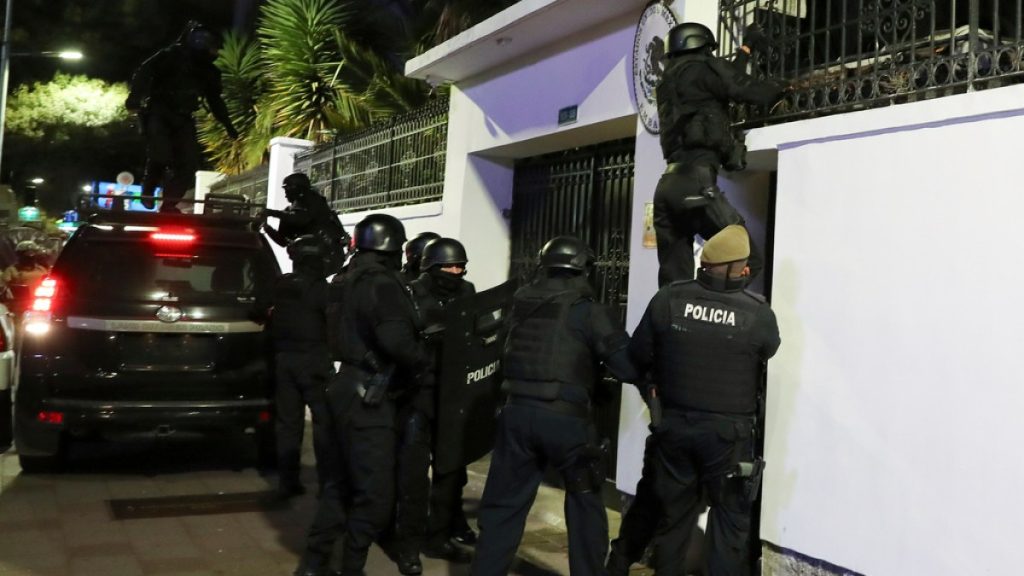The International Court of Justice (ICJ) is set to hear a case brought by Mexico against Ecuador over the storming of Mexico’s Embassy in Quito to arrest former vice president Jorge Glas, who was granted asylum by Mexico. Mexico has filed a complaint alleging that Ecuador violated international law by conducting a forcible break-in at the embassy. In response, Ecuador has accused Mexico of shielding Glas from enforcement of Ecuadorian criminal law and interfering in its domestic affairs, leading to a diplomatic feud between the two countries.
Jorge Glas, the central figure in the dispute, served as vice president under former President Rafael Correa in Ecuador. He was convicted of corruption charges related to the Odebrecht scandal and sought refuge in Mexico’s Embassy in 2023. Glas’s asylum in the embassy led to tensions between the two countries, with Mexico accusing Ecuador of violating diplomatic norms and Ecuador claiming that Mexico’s actions were unlawful and interfered in its internal affairs.
The Ecuadorian courts have upheld Glas’s imprisonment despite declaring the raid on the embassy illegal. President Noboa has emphasized his government’s commitment to upholding the rule of law and ensuring that criminals do not evade justice. Glas remains imprisoned in Guayaquil following the embassy raid, as both countries present their cases to the ICJ for adjudication of the dispute.
Mexico’s decision to grant Glas asylum is part of a larger pattern of offering refuge to political figures, particularly those aligned with the left, across Latin America. President Andres Manuel Lopez Obrador has used asylum as a tool to show support for embattled political allies, raising concerns about the devaluation of Mexico’s tradition of providing asylum. The impact of granting asylum to controversial figures like Glas has led to strained diplomatic relations with other countries in the region, highlighting the broader implications of Mexico’s asylum policy.
The storming of Mexico’s Embassy in Quito and the subsequent diplomatic feud between Mexico and Ecuador have drawn condemnation from countries and international organizations. The Organization of American States (OAS) expressed solidarity with Mexico and called for a resolution of the dispute in accordance with international law. Various Latin American countries, as well as the United States, have criticized the actions taken by Ecuador in violating the inviolability of diplomatic missions. The fallout from the embassy raid has underscored the importance of respecting diplomatic norms and international law in resolving disputes between countries.
In sum, the dispute between Mexico and Ecuador over the storming of Mexico’s Embassy in Quito and the granting of asylum to Jorge Glas has escalated to the International Court of Justice. Both countries have presented their cases, with Mexico alleging violations of international law by Ecuador and Ecuador accusing Mexico of interfering in its domestic affairs. The legal and diplomatic implications of this case shed light on the complex political dynamics in Latin America and the challenges of upholding diplomatic norms and the rule of law in the region. As the ICJ adjudicates this dispute, the outcomes will have far-reaching consequences for bilateral relations and the protection of diplomatic missions in the region.















